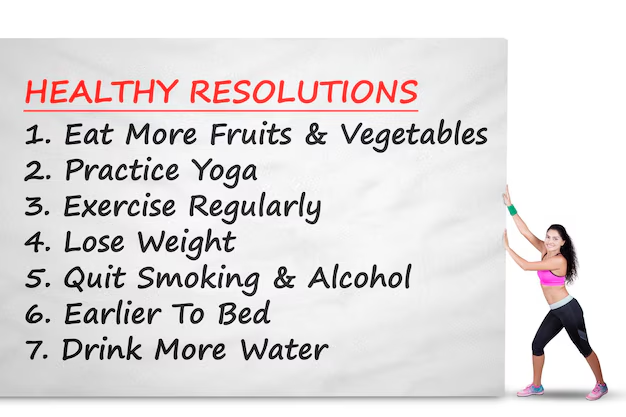
Achieving optimal health is a multifaceted journey that requires more than just occasional exercise or restrictive dieting. It involves developing a sustainable lifestyle that nurtures both your body and mind through fitness, nutrition, and overall wellness. Whether you’re just starting out or looking to refine your current routine, the path to health is about finding balance and consistency. In this blog, we’ll explore essential fitness tips and healthy eating advice that can guide you towards a healthier, happier life.
1. Fitness Tips: Building a Strong Foundation
Physical fitness is an essential pillar of health. Regular exercise not only improves your strength and endurance but also supports your immune system, boosts mood, and improves mental clarity. However, finding a workout routine that works for your body and lifestyle is key to long-term success.
Tip #1: Start with Your Goals Before diving into any fitness plan, it’s important to define your goals. Are you looking to lose weight, build muscle, improve cardiovascular health, or simply feel more energized? Knowing your goals will help you choose the right type of exercise and create a plan tailored to your needs.
Tip #2: Make it Consistent Consistency is crucial for seeing results. Aim for at least 150 minutes of moderate-intensity exercise each week, as recommended by the World Health Organization (WHO). You can break this down into manageable sessions—30 minutes a day, five days a week—so it fits easily into your routine. Staying consistent will yield better results over time than sporadic, intense workouts.
Tip #3: Mix Up Your Routine Variety is not only more enjoyable, but it also helps you target different muscle groups and prevents plateaus. Incorporate a combination of cardiovascular exercises (running, cycling, swimming), strength training (weight lifting, bodyweight exercises), and flexibility practices (yoga, Pilates). This balanced approach ensures you’re improving every aspect of your fitness.
Tip #4: Prioritize Rest and Recovery While exercise is essential, rest and recovery are just as important. Adequate recovery time allows your muscles to repair and grow stronger, reducing the risk of injury. Include rest days in your workout schedule and make sure to get plenty of sleep to allow your body to recover effectively.
2. Healthy Eating Advice: Fueling Your Body Right
Nutrition is the cornerstone of overall health. What you eat directly affects your energy levels, immune system, mood, and physical performance. To maximize your health, it’s important to focus on a balanced, nutrient-dense diet that provides essential vitamins, minerals, and macronutrients your body needs.
Tip #1: Eat a Variety of Whole Foods A balanced diet starts with variety. Eating a wide range of whole foods—fruits, vegetables, lean proteins, whole grains, and healthy fats—ensures you’re getting all the necessary nutrients your body requires. Each food group offers unique health benefits, and a colorful plate often means a well-rounded meal.
Tip #2: Incorporate Lean Protein Protein is essential for muscle repair, immune function, and overall health. Include a source of lean protein in each meal, such as chicken, fish, beans, lentils, or tofu. Protein also helps keep you full for longer, preventing overeating and unhealthy snacking.
Tip #3: Don’t Skip Healthy Fats Healthy fats are important for brain function, hormone regulation, and maintaining healthy cells. Include sources of unsaturated fats in your diet, such as avocados, nuts, seeds, and olive oil. These fats also provide lasting energy and contribute to the absorption of fat-soluble vitamins.
Tip #4: Choose Whole Grains Over Refined Carbs Whole grains, such as brown rice, quinoa, oats, and whole-wheat bread, are high in fiber and help regulate blood sugar levels, support digestion, and provide steady energy. Opt for these over refined grains like white rice and white bread, which are stripped of nutrients and fiber.
Tip #5: Hydrate for Optimal Performance Water is crucial for digestion, energy, and detoxification. Aim for at least 8 cups of water a day, more if you’re physically active. Proper hydration supports muscle function, helps regulate body temperature, and promotes clearer skin.
Tip #6: Control Portion Sizes Even healthy foods can contribute to weight gain if eaten in excess. Paying attention to portion sizes can help you maintain a healthy weight. Using smaller plates, eating slowly, and being mindful of hunger cues can prevent overeating and help you establish a healthier relationship with food.
3. Mindful Eating: The Power of Awareness
While healthy eating is about the foods you choose, mindful eating is about how you eat. The practice of mindful eating encourages you to pay full attention to your food—how it tastes, how it smells, and how it makes you feel. This practice helps you avoid distractions and emotional eating, leading to healthier eating habits and better digestion.
Tip #1: Slow Down Take time to chew your food properly and savor each bite. Eating slowly allows your body to recognize hunger and fullness cues, reducing the likelihood of overeating.
Tip #2: Eliminate Distractions Avoid eating in front of the TV, computer, or while scrolling through your phone. Distractions can cause you to eat mindlessly and miss the signals your body is sending about fullness and satisfaction.
Tip #3: Listen to Your Body Mindful eating is about listening to your body’s natural hunger and satiety cues. Eat when you’re hungry and stop when you’re comfortably full, not when your plate is empty. Trust your body’s signals rather than external cues, such as portion sizes or the need to finish everything on your plate.
4. Mental Wellness: The Missing Link
Physical health and nutrition go hand-in-hand with mental health. Taking care of your mind is just as important as taking care of your body. Incorporating habits that reduce stress, improve focus, and promote relaxation is essential for overall well-being.
Tip #1: Manage Stress Effectively Chronic stress can lead to burnout and health issues, so finding effective ways to manage stress is vital. Practices such as deep breathing, mindfulness meditation, and yoga can help calm the mind and reduce anxiety. Regular physical activity also plays a significant role in managing stress.
Tip #2: Get Quality Sleep Sleep is a critical component of both physical and mental health. Aim for 7-9 hours of sleep each night, and establish a bedtime routine to help your body wind down. A good night’s sleep improves cognitive function, boosts mood, and supports the recovery process after workouts.
Tip #3: Engage in Social Connections Strong relationships contribute to emotional well-being. Make time to connect with friends, family, or colleagues, whether it’s through a phone call, a shared meal, or a simple walk together. Social interactions can improve mood, reduce feelings of loneliness, and provide emotional support.
Conclusion: Stay Committed to the Journey
The path to health is an ongoing journey that requires commitment and consistency. By focusing on regular fitness, balanced nutrition, and mental wellness, you’re setting yourself up for long-term success. Remember, progress takes time, and small, sustainable changes can lead to lasting results. Whether you’re just starting or refining your current routine, every step forward is a victory. Commit to your health and well-being, and enjoy the rewards of living a balanced and vibrant life.












